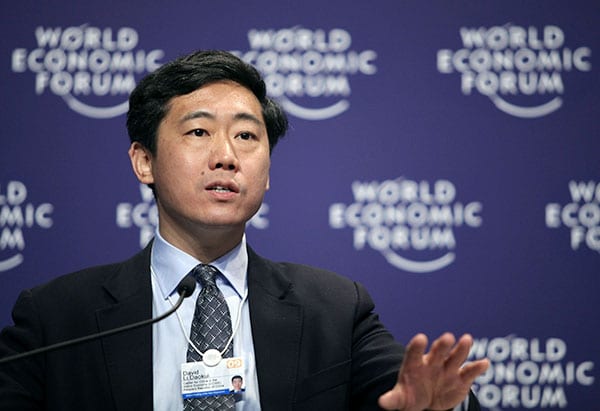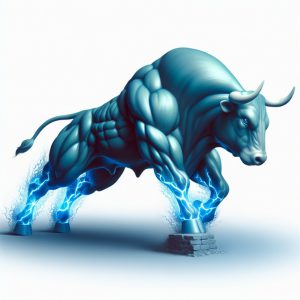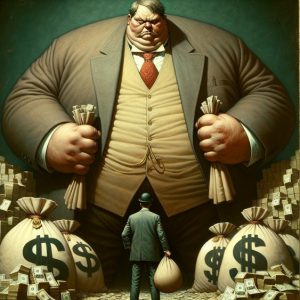
Editor: Vladimir Bajic | Tactical Investor
Chinese Recession 2016: Economic Downturn and Its Implications
Updated May 2023
There was a time China was building the right wealth: factories that produced competitive products and bridges and roads to connect cities and towns. However, after 2008 China’s growth model shifted. It began building excess industrial capacity and investing in unproductive sectors like real estate and infrastructure. This shift prioritized quantity over quality, focusing on achieving high GDP growth at all costs through massive investment and construction projects. Between 2008 and 2015, China’s investment as a percentage of GDP increased from 42% to over 50%.
The government poured money into state-owned enterprises and funded massive infrastructure projects, many underutilized or unnecessary. Local governments also took on huge debts to fund construction booms, contributing to the rapid rise in China’s overall debt levels. This unsustainable growth model, reliant on debt-fueled investment, set the stage for China’s impending economic slowdown.
Rising Debt and Property Bubble
This led to overcapacity, wasteful spending and a growing debt burden. China’s total debt climbed from around 150% of GDP in 2008 to over 300% today. The property market, which accounts for 15% of China’s economy, also shows signs of weakness. With unsold inventory piling up – reaching 65.9 million square meters in 2016 – and sales slowing, there are fears that China’s property bubble could burst, exposing the massive debts held by developers and local governments.
The property sector has been a major driver of … investment and economic growth in recent years but now faces declining demand as home prices become increasingly unaffordable for many Chinese citizens. A collapse in property prices could trigger defaults on the massive loans taken out by developers, many of which are owed to state-owned banks. This, in turn, could ripple through the financial system and further weigh on … economic activity, exacerbating China’s impending recession. The property market will be a key vulnerability to monitor as the economy slows.
Slowing Demographics
The demographic dividend resulting from a large working-age population is becoming a deficit as the population rapidly ages in many countries. The slowdown in productivity growth means economic output per worker has not increased at the same rate as in the past, further compounding the issue. Environmental problems like pollution, resource depletion, and climate change threaten to derail economic progress.
China’s experience highlights these challenges. As China’s working-age population peaked in 2012 and began declining, the country lost a major advantage it had enjoyed for decades – a surplus of young workers. This decline will continue, with China’s population projected to shrink in 2027. An ageing workforce means China will have relatively fewer young labourers and consumers but more retirees needing support. The ageing population will also strain China’s pension and healthcare systems.
Meanwhile, China’s productivity growth has slowed in recent years. Many analysts attribute this to China’s overreliance on investment and exports for economic growth at the expense of innovation and an emphasis on higher value-added industries. China also faces severe environmental issues that threaten to undermine its economic model, like air pollution, water scarcity, and soil contamination. The demographic dividend China enjoyed for so long is turning into a deficit, and without changes to its economic model, China’s potential growth rate will likely continue slowing in the coming decades. The experiences of countries like China serve as a warning for other nations as populations age and environmental pressures mount.
Chinese Recession 2016: Implications of an Economic Slowdown
China’s economic growth has been driven by heavy investment in infrastructure, real estate and industrial capacity fueled by a rapid rise in debt over the past decade. However, there are signs this investment-led model is reaching its limits. Property investment and construction activity have slowed significantly, indicating overcapacity in these sectors.
Manufacturing and export growth have also decelerated as China faces rising labour costs, trade tensions and a maturing technology cycle.
Transitioning to a Consumption and Innovation-Driven Economy
The service sector, while growing, remains relatively underdeveloped compared to China’s large manufacturing base. The government is aware more consumption and innovation-driven growth is needed, but reforms to encourage this have been slow.
China’s debt levels, especially corporate debt, have risen sharply to support investment. However, higher debt servicing costs and rising defaults indicate that debt-fueled growth is becoming unsustainable. The government will likely need to accept slower growth and more bankruptcies and job losses as part of rebalancing the economy.
A sharp economic downturn in China would have global spillover effects through various channels…[rest of text omitted]
This Article, Initially Published on Sep 24, 2016, Has Been Regularly Updated Throughout the Years. The Latest Update was in May 2023.
Interesting Reads

Contrarian Thinking: The Power of Challenging the Status Quo

When Is the Stock Market Going to Crash: Anticipating the Unknown

Millennials are killing everything. Are you next?

American retirement just another Pipedream

Mastering the Trading Range: Unlocking the Potential for Explosive Gains

Uptrend Stocks: Navigating the Renaissance of Market Prosperity”

Immoral Behavior and the Religious Provocation Index

How To Get Financial Freedom: Escape the Herd for Lasting Success

Unleashing Passion: The Intriguing Realm of AI Sex Bots

Legalized Food Poisoning: America’s Toxic Diet by Design

“””Investing for dummies”””: Follow The Trend

Executive Compensation Driving Share Buybacks

Illusions of Economic Recovery: Negative Interest Rate Controversy

The Golden Symphony: Unveiling the Dynamics of the Gold to Silver Ratio

South China Sea Showdown: Intensifying Heat on the Horizon


